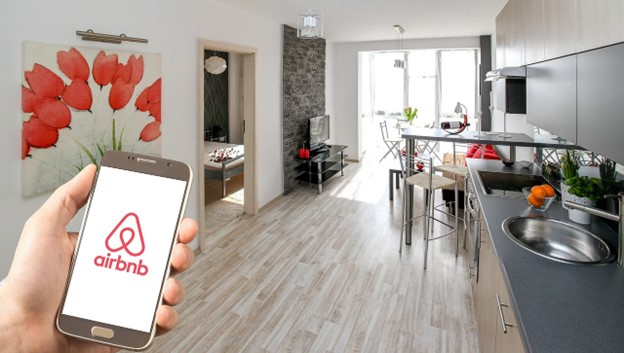My blog focuses on Financial Literacy/Money, and both Home and Living, and Property Discussions. Most empty nesters find themselves with extra space once their children move out. Some use the extra space as asset and generate income. The following contributed post is entitled, From Empty Nest to Cash Flow: How Retirees Are Monetizing Their Extra Space.
* * *
When the kids move out, silence settles in—and so does potential. All across the country, retirees are staring down spare bedrooms, unused garden flats, and basements that haven’t seen life since the class of ’03 packed their things. But instead of letting space gather dust (and soak up maintenance costs), a growing wave of retirees is flipping the script. They’re turning that “empty nest” into a reliable income stream—and, in some cases, a small business. Let’s dig into how they’re doing it—and how you might, too.

Via Pixabay
The Rise of the Income-Generating Home
The idea of “downsizing” used to dominate retirement conversations. Sell the big house, move into a cosy flat, and trim the bills. But not everyone wants to let go of their family home, especially when it’s fully paid off and located in an area with tourist appeal or rental demand.
So, instead of downsizing, retirees are optimizing.
Some convert old bedrooms into guest suites. Others revamp separate entrances or garages into standalone studio units. With a few smart upgrades—private bathrooms, kitchenette nooks, tasteful furnishings—a retiree’s home can become a high-yield asset.
Not Just About the Money (But Also, Definitely About the Money)
Retirement income isn’t what it used to be. Inflation is biting into pensions. Healthcare costs keep climbing. But property? It’s still gold.
Even one room rented a few weekends per month can generate enough to cover utility bills or property taxes. Add a second room, or go full-scale with a backyard cottage or guesthouse. You’re looking at potential monthly earnings that rival a part-time job—without ever leaving home.
Many retirees report a deeper benefit, too: purpose. Hosting travellers or remote workers brings life back into the home, sparking conversations, routine, and a feeling of relevance many miss after retirement.
Why Going It Alone Isn’t Always Wise
Here’s the caveat: running a short-term rental isn’t as simple as listing it online and handing over the keys. There’s cleaning, maintenance, marketing, pricing strategies, reviews, guest communication—it’s a business, not a hobby.
That’s where an experienced Airbnb management company comes in. These firms specialize in turning residential spaces into polished, revenue-generating listings—handling everything from staging and photography to dynamic pricing and 24/7 guest support. For retirees, this means income without the headache. They maintain control but outsource the stress.
The Legal and Lifestyle Side of Things
Before jumping in, it’s crucial to check local zoning laws and HOA rules. Some areas restrict short-term rentals, while others encourage them. Also, consider lifestyle: are you comfortable sharing your space regularly? Would you prefer long-term tenants over weekend guests?
Some retirees mix and match—rent seasonally, or only when traveling themselves. Flexibility is part of the charm.
Final Thoughts: A New Chapter, Not a Closed One
Retirement doesn’t have to mean slowing down. It can mean scaling smart. Monetizing your extra space isn’t just about making money—it’s about rewriting the story of homeownership later in life. Whether it’s paying for travel, supporting grandkids, or just topping up the wine budget, your “empty” nest might be more valuable than you think.
